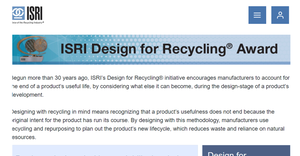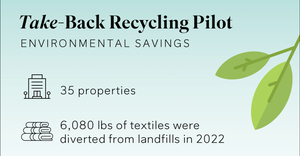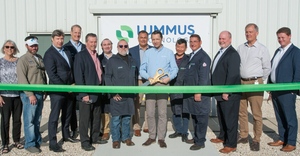NuTerra has begun construction of an organics recycling facility in Haines City, Fla.
NuTerra said the move begins the second phase of Haines City’s plan to produce a high-quality compost for residents and surrounding communities for lawns, athletic fields, golf courses and agriculture, the Jacksonville, Fla.-based biosolids and wastewater management company said in a news release.
The facility will use NuTerra’s proprietary process control system to continuously monitor the process through automation. The approach eliminates the need to reposition probes and avoids disruption of the process from exposure to rain, humidity and other factors that impact the active composting and curing process.
NuTerra designed the new facility and will build, operate and maintain it at the wastewater treatment plant’s property site. Haines City will own the building, which will merge residents’ yard waste with wastewater treatment biosolids and other organic waste accepted from surrounding communities and commercial operations.
NuTerra will market the resulting compost product for reuse locally and in surrounding communities. 

“The new facility will be the first of its kind in Florida, providing the most economical and environmentally friendly approach to organics recycling,” said NuTerra CEO Aaron Zahn.
Phase one of the project began in 2012 when NuTerra helped Haines City meet its financial goals and produce a Class AA/EQ product by upgrading wastewater treatment from aerobic digestion to the BCR Environmental (NuTerra’s partner) Neutralizer system. The city avoided capital expenditures of $2.75 million for digester rehabilitation and dewatering equipment, reduced annual biosolids treatment and disposition costs by about $133,000 for 20 years, reduced energy costs for biosolids treatment by approximately 97 percent and created a virtually odor-free operation.
Organics continues to be a primary material target for increasing recycling. In April New York City announced its plant to reduce the amount of waste it disposes of by 90 percent by 2030 and to send zero waste to landfills by that point. Part of that plan includes the expansion of New York City’s organics curbside collection and local drop-off site programs to serve all New Yorkers by the end of 2018.
In discussing waste and recycling technology trends recently with Waste360, Anne Germain, director of waste and recycling technology for the National Waste & Recycling Association (NWRA), identified anaerobic digestion as probably the most popular technology in the industry and one that is continuing to evolve.
About the Author(s)
You May Also Like


